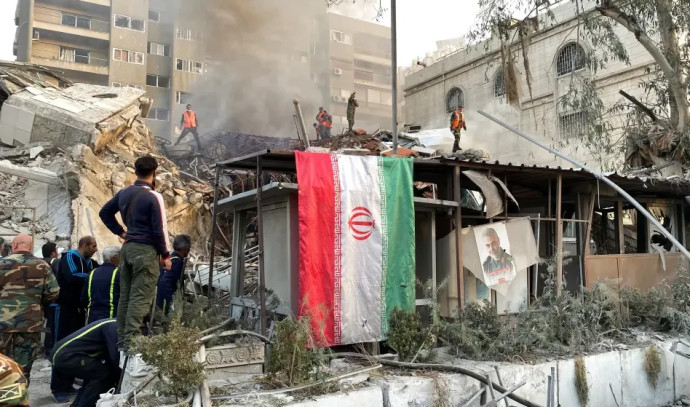The security establishment is on high alert this week against the possibility that Iran will react radically to the assassination of a senior Revolutionary Guards Corps officer, Mohammad Reza Zahedi, in the heart of Damascus last week.
In Israel, they estimate that Iran is determined to respond to the targeted countermeasures. But they refused to comment on whether the assessments are based on solid intelligence that also drew President Joe Biden to speak about the commitment of the United States to the security of Israeli citizens against Iranian aggression.
It can be assumed that the response will not come directly from Iran, as it would be followed by a direct response from Israel to Iran.
Be that as it may, the Iranian Foreign Minister, Hossein Amir Abdullahian, repeated the threats two days ago during his visit to Damascus at the end of a meeting with the heads of the Syrian regime.
The fear in Israel is that the Iranians are preparing for a broad attack that will cause damage and casualties to the Israeli homefront since, in their view, Israel attacked the consulate where Zahedi was staying.
Experts in Israel said that this is not a consulate and the Iranians are trying to attribute to Israel a violation of Iranian sovereign space. This is how the consulate and embassy are perceived.
The Iranian response
According to the experts, Iran can respond in several ways. The first and immediate reaction is from Syria, where the Iranian Quds Force operates the Imam Hussein Division.
This division contains thousands of Shiite fighters under Iranian command. It also includes a mobile battalion that carries surface-to-air missiles and a unit for operating drones.
The Iranians can launch missiles and UAVs at Israel from Lebanese, Yemeni, Iraqi areas, and even from the sea.
Also, with their visa to use emissaries against Israeli targets around the world - including embassies while marking Israeli personalities and security forces.
An Iranian attack on the Israeli home front, on IDF bases, population centers, or strategic installations and national infrastructures will oblige Israel to respond sharply.
Israel will be faced with the following dilemma: will the IDF respond to an unusual attack with casualties or damage to national and military infrastructures against Iran or against countries of origin like Syria, Yemen, and Lebanon?
Will they be upset if there are no casualties but only damage?
Therefore, at the moment, the IDF is not taking unnecessary risks and has decided to strengthen all formations in the areas of detection, control, and air defense from the ground, the air, and the sea. Reserve forces will reinforce the various formations on round-the-clock shifts.
Officials emphasized that the Joint Chiefs of Staff presented to Defense Minister Yoav Gallant a report on the level of preparedness of the forces in the air, at sea, and on land for the various threat scenarios and clarified that at this stage, it was decided to maintain a routine in the home front without special instructions.
Iran will oblige Israel to respond and may harm the attention and progress of negotiations for the release of hostages in Israel.

